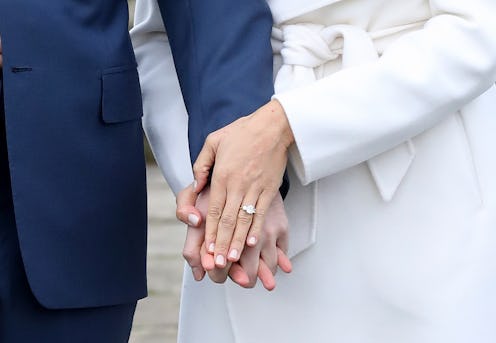Viral videos celebrating a couple’s engagement have become a dime a dozen these days, so it’s not surprising that there’s yet another making the rounds right now. University of Montana student Jack Hyer proposed to his girlfriend, Rebecca Strellnauer, on the day of their college graduation with a video of him lip synching the Proclaimers’ “I’m Gonna Be (500 Miles)” in all of the places he’d traveled during their four years together. Don’t get me wrong; I don’t think that engagement videos are inherently a bad thing. If you put a lot of thought into one, it can be an absolutely amazing gift for both the giver and the receiver. But the question I always ask myself is this: Are all these viral engagement videos — the movie trailer proposal, the puppy proposal, this crazy thing offered by the Langham Huntington Hotel, and so on — being made to celebrate awesome relationships and the loves of all these peoples’ lives? Or are they being made specifically so they can go viral and make their creators Internet-famous?
Now, it’s probably safe to say that Hyer didn’t initially intend his engagement video to be a viral hit. Here's how it went down: The night he went on his first date with his now-fiancée, Hyer started planning exactly how he was going to propose to her. It’s a project that was literally four years in the making, which can either be seen as incredibly sweet or a little bit creepy depending on your point of view. Over the course of those four years, he shot a little bit of footage of himself lip synching the Proclaimers tune in all of the countries to which he traveled (an impressive 26 locales). Then he cut it all together and showed it to his intended on the day of their college graduation as his proposal. That’s all well and good; no problems there. The thing that makes me kind of go “…eh?”, though, is the fact that he then uploaded it to the Internet with a preamble that pretty clearly shows he did it to make the thing go viral. There’s even a notice in the video’s description that reads, “To use this video in a commercial player or in broadcasts, please email licensing@storyful.com.” You don’t put something like that there unless you actually want people to use the video in commercial players or broadcasts.
Here’s the thing: You can put together an adorable and touching video for your husband- or wife-to-be and upload it to an easy-to-access video sharing website without making it so the whole world can see it. Videos set to “private” on YouTube won’t show up in the site’s search function; you can only watch them if you’re given the direct URLs for them. So: If you’re going to make a video for the love of your life—and by all means, do!—why not set it to private? You’ll be able to show it to your intended, you’ll still be able to share it with your close friends and family if you really want to, and you don’t have to try to make some huge Internet phenomenon out of it. More specifically, you don’t have to feel the pressure to make some huge Internet phenomenon out of it. Everybody wins, right?
I’ve noted before that I don’t often have a problem with advertisements that are developed to be viral campaigns, mostly because the point of an advertising campaign is to reach as many people as possible in order to sell a product. But when that product becomes someone’s real-life relationship, I can’t help but think consciously trying to make it go viral cheapens both engagements and — perhaps more troublingly — the whole idea of love in the first place. Love doesn’t have to “go viral” to be real, deep, and satisfying. So let’s just unplug for a little bit and let it be what it will be, shall we?
Great. Now I have the Proclaimers stuck in my head. Guess I’ll be doing this for the rest of the afternoon:
